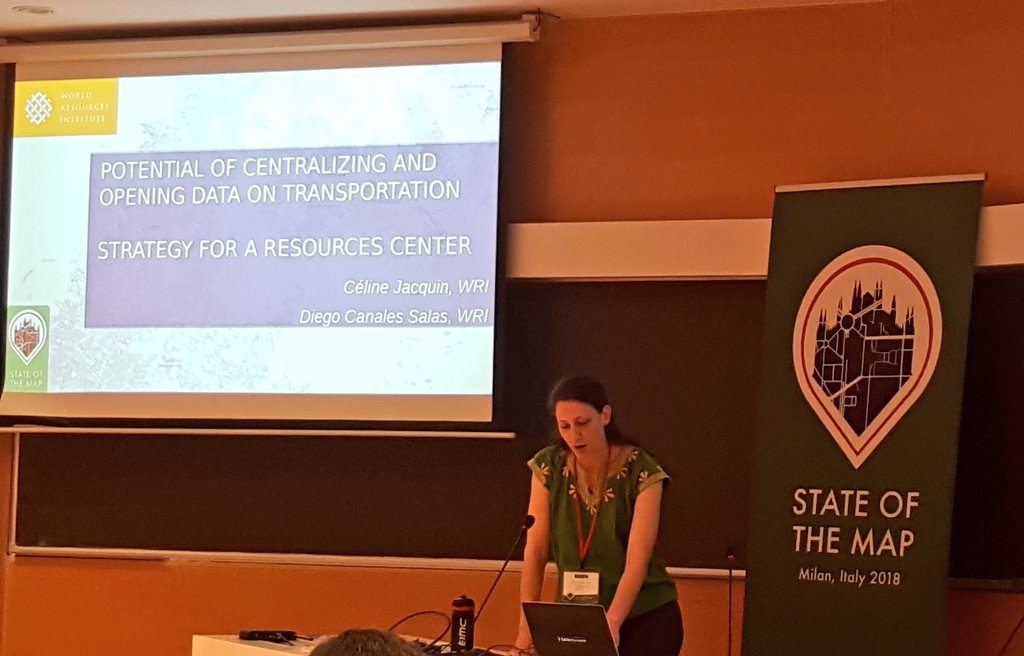Continuidad del trabajo sobre diversidad de género en OSM por Geochicas - SOTM Milán 2018
Posted by mapeadora on 14 August 2018 in Spanish (Español).Geochicas es un grupo de mujeres de Openstreetmap de habla hispana, formado poco antes del SOTM-LATAM en Sao Paolo en 2016, alrededor de los debates previos al evento sobre la muy baja participación femenina en las propuestas.
Derivado de esta observación en el canal de comunicación de OSM-LATAM (chat de Telegram), se amplió la discusión sobre la baja participación de mujeres en este chat regional así como en la comunidad en general, en sus escalas locales, regionales y global.
Siguiendo esta constatación, @SeleneYang (Argentina), @Mapanauta y @Mapeadora (México) decidimos organizar juntas una serie de actividades en este SOTM para iniciar la reflexión colectiva sobre la inequidad de género en esta comunidad regional, plantear los temas claves, desarrollar líneas perenes de trabajo.
Estas líneas fueron:
- La decisión de tener en todos los SOTM de este continente un espacio de reflexión en forma de charla y panel con la asamblea, sobre la equidad de género, podiendo dar continuidad y medir progresos
- Formar un grupo de mujeres con un chat reservado llamado Geochicas, creado en el mismo momento de la asamblea con unas 30 asistentes
- Tener un esfuerzo de comunicación proactivo en las redes de Openstreetmap LATAM para mantener activo el debate sobre equidad de género
- Promover en el grupo de mujeres la enseñanza de temas técnicos, el debate de nivel teórico
- Promover nuestra participación continua en eventos de datos y tecnologías libres y una participación sistemática en los SOTM.
De 3 personas el grupo creció durante el evento a 30, y reúne, año y medio después, a 150 personas de orígenes diversos, de numerosas comunidades, con perfiles muy amplios.

 It can be viewed at
It can be viewed at 
 En el pasado taller de mapeo de #Repubikla y #Mapeaton del mes de mayo en Morelia (organizado por Bicivilízate A.C.), Fabiola Rayas Chávez planteó su interés para una colaboración entre Repubikla y su proyecto artístico basado en el recuerdo de los desaparecidos en Michoacán.
En el pasado taller de mapeo de #Repubikla y #Mapeaton del mes de mayo en Morelia (organizado por Bicivilízate A.C.), Fabiola Rayas Chávez planteó su interés para una colaboración entre Repubikla y su proyecto artístico basado en el recuerdo de los desaparecidos en Michoacán.